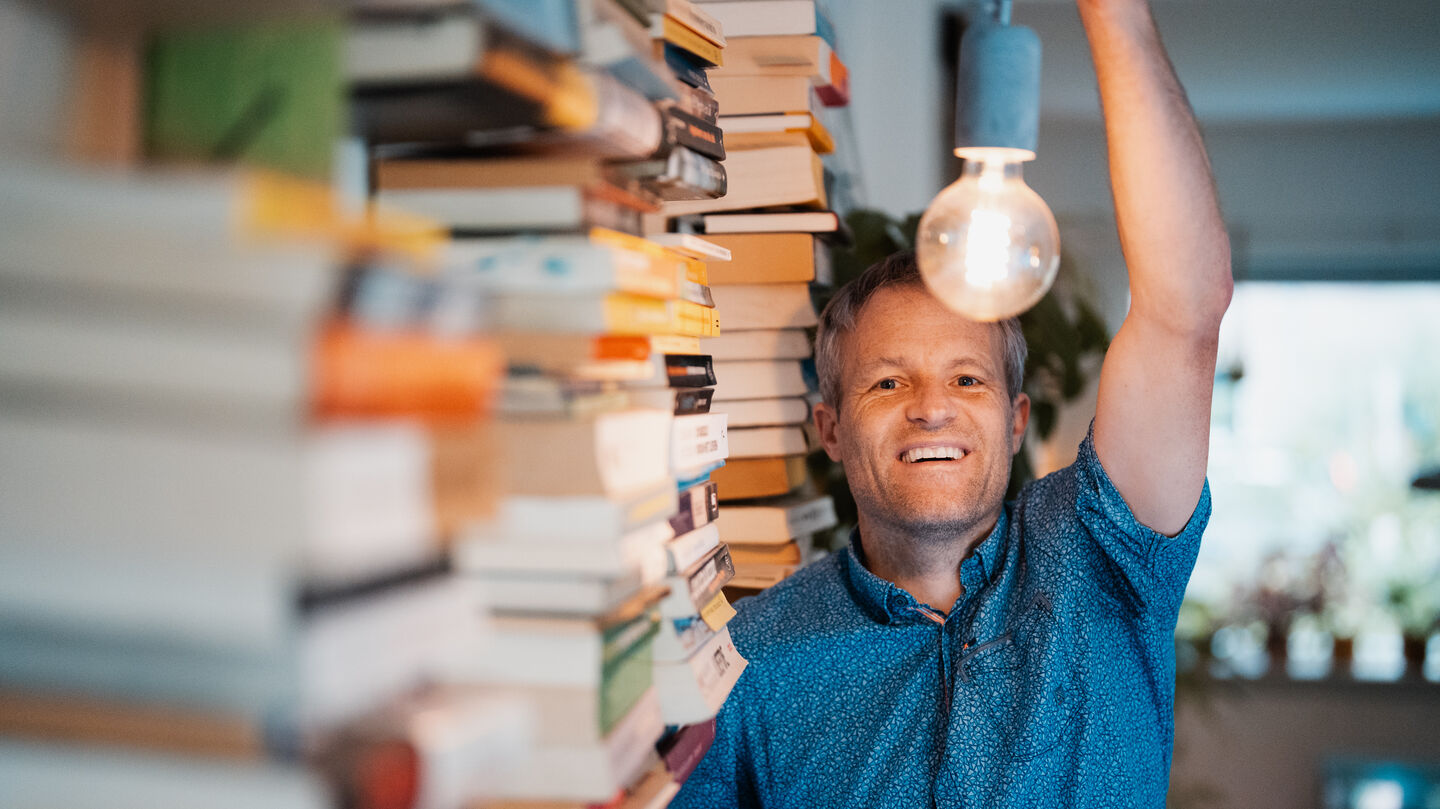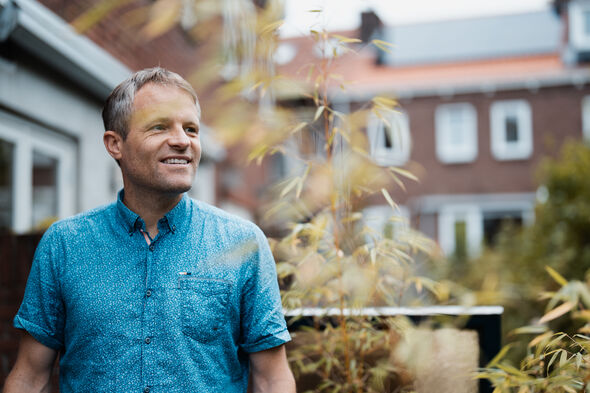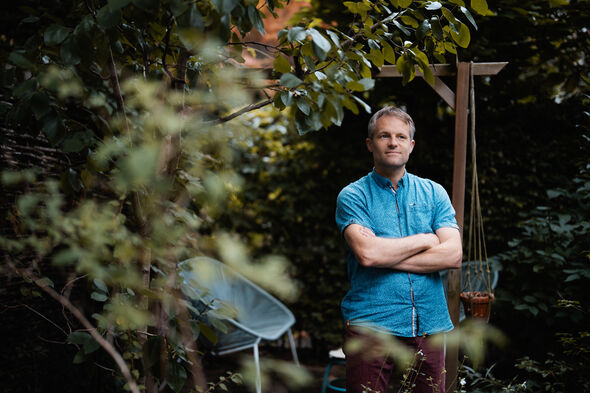
How fabricated data and predatory journals pollute science
In the race for money and prestige, researchers sometimes cross the line. Science journalist Stan van Pelt explored the world of fraud, fake articles, and sham conferences and wrote a book about it. “Faulty data are a kind of fake news that is contaminating the entire scientific literature.”
If there’s one thing that irritates Stan van Pelt, it’s the sports metaphor that is often used in science. A few years ago, Marcel Levi, then chair of the Dutch Research Council (NWO), used it in a column. Science, he wrote, is “top-level sport.” Other researchers speak of the “Champions League.” That, Van Pelt believes, is precisely where things go wrong. “Science is not about the individual achievements of a researcher, it’s about the team.”
Much is amiss in the world of science, as the journalist and former researcher reveals in his new book, Sloppy Science, published this week. Many of the lapses and fraudulent practices he describes can be traced directly to the competitive atmosphere that has prevailed for far too long. Prestigious prizes such as the Nobel Prizes and the Dutch Spinoza Prizes are awarded to individuals, not research groups. “The word ‘prize’ says it all,” Van Pelt notes. “As if a research grant is something you win. No, it’s funding you receive for your research.”
For his book, Van Pelt dug into well-known cases of fraud (such as the infamous Diederik Stapel case), used AI to generate a fake article to demonstrate how easily nonsense can be published, and attended a fake conference in Budapest—complete with real professors and bottles of water on neatly set tables. In more than three hundred pages, he describes how scientists, eager for scarce research funds and limited career opportunities, sometimes spin out of control, damaging the reputation of academia as a whole.
On September 30, Stan van Pelt will present his new book Sloppy Science at bookstore Van Piere in Eindhoven. The book launch starts at 8:00 PM and is free to attend for TU/e students. Others pay €2.50. Click here for tickets. The author will be signing copies afterward.
Was science once free of such problems?
“Of course not, no field has ever been completely free of issues. But I think things spiraled out of hand in the past 25 years. That was when neoliberalism took hold, and former state-owned companies such as the Dutch Railways and the PTT were privatized. Around the same time, the university funding system changed. Instead of receiving a lump sum to spend at their discretion, universities increasingly required researchers to apply for NWO grants. These grants demanded detailed project plans in return.”
At the same time, the number of PhD candidates skyrocketed, you write.
“Yes. In 2005 there were about 7,000, and by 2023 that number had nearly doubled. In the past, pursuing an academic career was something for the enthusiasts, the real diehards. But the PhD system has become a juggernaut. It turned into a pyramid, with very few permanent jobs at the top and an ever-widening base of young people vying for appointments. Only one in twenty PhD candidates becomes a full professor. You can imagine the competition is enormous. They’re all fighting for jobs and funding. Those are perverse incentives that encourage all kinds of problems.”
Predatory journals
Polishing research results just to get a paper published is not even the biggest issue, according to Van Pelt, who himself spent fifteen years as a researcher. Much worse—and more threatening—are the predatory journals springing up everywhere. “Editorial boards” approach researchers and ask them to submit papers—naturally, at a hefty fee. But there’s no real editor involved, and peer review, the standard quality check in legitimate academic publishing, is entirely absent.
Earlier this year, Van Pelt submitted a completely fabricated article that was accepted without question, even though he explicitly wrote that no experiment had ever taken place.
Researchers will do anything to expand their publication list, and these journals exploit that drive, with almost no oversight in place. Van Pelt calls the article mills—often based in Iran or China—“truly criminal.” For a fee, sometimes with AI assistance, they produce entire articles on behalf of scientists who don’t have the time to write themselves. This is particularly common in non-Western countries where internal university oversight is weak or nonexistent. Most of what appears in those articles, Van Pelt says, is complete nonsense.
Why is that such a problem? Some might say: let researchers sort it out among themselves.
“Because fellow researchers don’t always realize the data are fake. Or that an experiment has been inflated—for example, that there were only ten test subjects instead of the hundred or thousand the article claims. But those results are still included in meta-analyses, which in medicine are used to form clinical guidelines. I spoke several times with Dutch professor of gynecology Ben Mol at Monash University in Australia, who is outraged about this and trying to stop it. He says: ‘Women and babies are dying because we allow this to happen.’ Faulty data are a kind of fake news that is polluting the entire scientific literature.”
How can science become healthy again?
“First of all: my book focuses on the excesses. A lot is going well, and there’s a large gray area between someone like Diederik Stapel, who fabricated entire studies, and someone who follows every rule to the letter. But I think we need to partly return to the old funding system, with less money funneled through NWO and more distributed directly to universities. We need to end the practice of grants that only last four years—the length of a PhD project. That way, universities could employ more people permanently.
Currently, 56 percent of researchers are on temporary contracts, and for PhD candidates it’s nearly 100 percent, even though they do most of the actual research work. If universities had more permanent jobs to offer, competition would ease, workload would decrease, and the perverse incentives for fraud would disappear. At the same time, we need to limit the influx of PhD candidates. There simply aren’t enough positions for them, and society has no real need for such large numbers of narrowly trained specialists.”
In your book you also propose some form of inspection service for science.
“Yes, I argue for better oversight. Many professions we value highly have inspectorates. Think of the Netherlands Food and Consumer Product Safety Authority or the Health and Youth Care Inspectorate. Why doesn’t science have something similar? Someone should occasionally check how data are structured and what analyses have been carried out.
If you insist on using the sports analogy: why do cyclists use doping? Because they want to be the best, and competition pushes them over the edge. Scientists also want to score and push boundaries. In cycling, that’s why doping checks were introduced: every day, someone can show up at your door asking for a urine sample. It doesn’t have to be that extreme in science, but it would help if researchers thought more often, ‘I’d better make sure everything is in order.’”
But universities already have scientific integrity committees, and there’s also a national body, LOWI.
“Those committees only investigate once someone has sounded the alarm. Until then, everyone assumes everything is fine. That’s exactly why Diederik Stapel was able to continue for so long. Moreover, the judgments these committees issue are only advisory. An executive board can decide what to do with them. I’d say: make such rulings binding. A researcher who crosses the line could, for example, be barred from research for two years, or in more serious cases, dismissed. Right now, that almost never happens.
But oversight can also be more low-threshold: implement a four-eyes principle. Before a paper is submitted, have someone else check whether all calculations and analyses are correct. Mistakes creep into research all the time, often because someone doesn’t fully understand the statistics.”
Restoring trust in science
Van Pelt has also thought about solutions for the problem of fake publications. Serious scientific journals should take swifter action when fraud detectives, like the aforementioned Ben Mol, raise concerns about a paper. In addition, academia should reclaim publishing itself. In the past, professional associations had their own journals, but with the rise of commercial publishers like Springer Nature and Elsevier, most of those disappeared. “Here in Nijmegen, Radboud University Press could take on that role. In some fields, like linguistics, researchers are already starting their own journals again and quitting editorial work for commercial publishers. Those are promising initiatives.”
In Van Pelt’s view, much is at stake. Public trust in science in the Netherlands remains high. A recent report from the Rathenau Institute found that people give science a score of 7.4 out of 10, higher than all other institutions studied, including the judiciary and the House of Representatives. “Science still has a lot of credit, and rightly so. But to maintain that trust, it needs to take its darker sides more seriously.”
This article was translated using AI-assisted tools and reviewed by an editor.
Who is Stan van Pelt?
Stan van Pelt (1978) was a researcher from 2002 to 2017, working at the Donders Institute in Nijmegen and in Frankfurt. He later became a science journalist. From 2019 to 2022, he was an editor at Vox, the university magazine in Nijmegen. He now freelances for outlets such as de Volkskrant and Vox. In 2023, he published Hack je hersenen (Hack Your Brain), a book about brain research.



Discussion